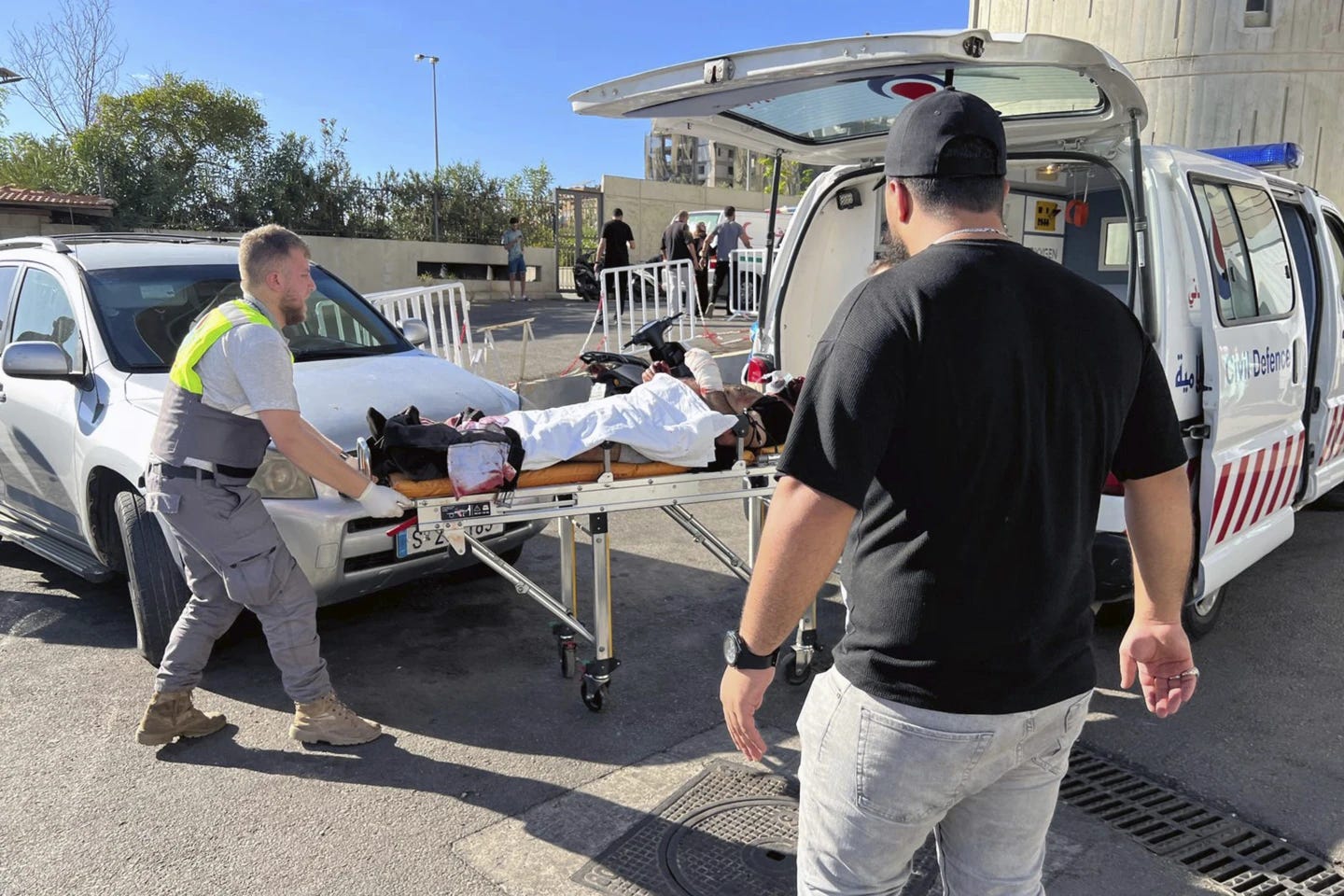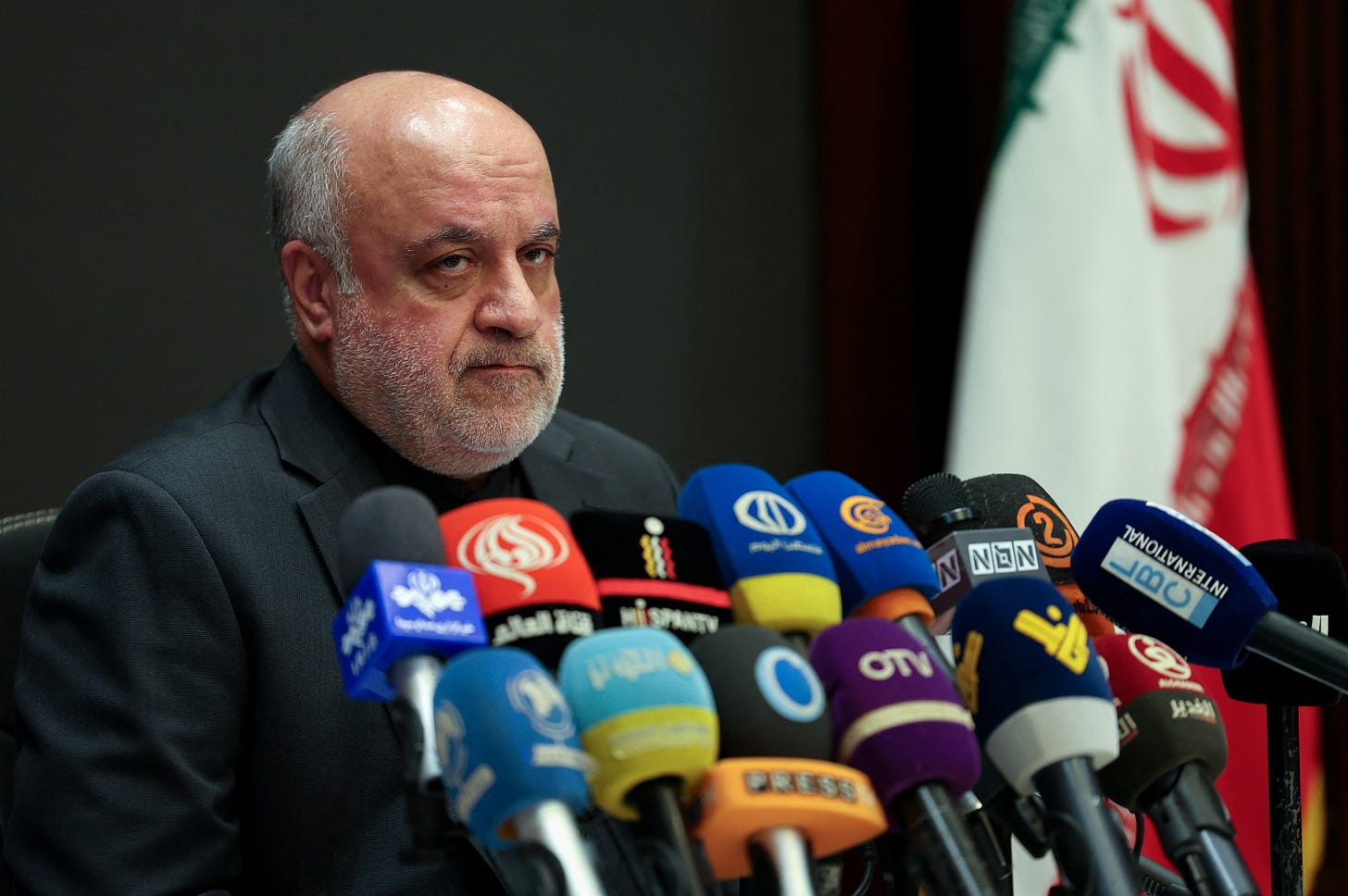Stunning Wave of Pager Explosions in Lebanon and Syria Kills 8, Including Hezbollah Members, and Injures Over 2,800
Israel's Counter-Warfare Against Hezbollah Cadres Erupts in Lebanon and Syria.

Exploding Pagers and Precision Strikes: Israel's Shadow War Against Hezbollah Unfolds
In a striking demonstration of counterintelligence precision, a coordinated series of explosions shook Lebanon and parts of Syria on Tuesday, killing at least eight people, including senior Hezbollah members, and injuring over 2,800. The explosions, set off by seemingly harmless handheld pagers, suggest a highly sophisticated operation believed to be part of Israel's covert warfare strategy against Hezbollah. This marks a significant escalation in the ongoing shadow conflict between the two adversaries, highlighting Israel's continued use of cutting-edge tactics in its campaign against the militant group.
The Sophistication of the Strike
The use of handheld pagers as explosive devices reveals a high level of tactical ingenuity. Hundreds of these pagers exploded across Hezbollah-dominated regions, suggesting a carefully orchestrated and synchronised attack aimed at destabilising the group from within. Among the casualties was a young girl and multiple Hezbollah operatives, reinforcing the calculated nature of the operation, which appeared to target Hezbollah's rank and file down to the individual. Though Israel’s military has not publicly acknowledged responsibility, the hallmark of this operation aligns with the country's long-standing efforts to cripple Hezbollah's leadership and operational capabilities through surgical strikes.
A Hezbollah official, speaking on condition of anonymity, shed light on the group's internal communications practices. He explained that a new batch of pagers, previously thought to be secure, saw their lithium batteries overheat and then explode. Hezbollah’s rank and file had been instructed to avoid using mobile phones, as they could be tracked in real-time, making them vulnerable to Israeli targeting. Ironically, the seemingly safer and more primitive pagers became a lethal liability. The lithium batteries were likely detonated through a remote code or virus, injected into the devices simultaneously, turning them into mini-bombs. The official squarely blamed Israel, reinforcing the suspicion of an external sabotage operation using advanced technology. Hezbollah, deeply entrenched in its ongoing conflict with Israel, now faces a critical vulnerability — the very technology they trusted has been weaponised against them.

Rising Tensions and Regional Implications
The attack comes at a time of heightened tensions between Lebanon and Israel, with near-daily skirmishes along the border and a backdrop of the ongoing Israel-Hamas conflict. Since October 2023, the region has seen over 11 months of hostilities, killing hundreds in Lebanon and dozens in Israel. Hezbollah, a staunch ally of Hamas, has found itself embroiled in this broader struggle, stretching its resources and inviting Israeli retaliation.
Adding to the complexities of the region, the Iranian Ambassador to Lebanon, Mojtaba Amani, was also reported among the wounded. "Amani has a superficial injury and is currently under observation in a hospital," Fars, semi-official Iran news agency quoted a source as saying. This involvement signals Iran’s increasing entanglement in Hezbollah’s activities, further fanning the flames of conflict between Tehran and Tel Aviv. For Lebanon, this attack exacerbates an already volatile situation, as hospitals in Hezbollah-controlled areas were inundated with thousands of wounded civilians and fighters.

Israel’s Covert Capabilities: A History of Precision
Israel's intelligence and military operations have long been the stuff of legend. From the Stuxnet cyberattack that crippled Iran’s nuclear programme to the targeted assassinations of high-ranking militants using booby-trapped phones, Israel has consistently showcased unparalleled precision in its covert actions. Most recently, on July 31, 2024, Israel executed a daring operation in Tehran, assassinating top Hamas leader Ismail Haniyeh, who was attending the swearing-in ceremony of Iran's new president, Massoud Pezeshkian. Today’s wave of pager explosions follows this legacy of surgical strikes, underscoring the reach and sophistication of Israeli counterintelligence operations, and further solidifying its formidable reputation in the realm of clandestine warfare.
What makes this particular operation stand out, however, is the ability to infiltrate Hezbollah's communication networks at such an intimate level. Pagers, once considered an outdated form of communication, were likely seen as secure from cyberattacks. Yet, Israel has once again proven its ability to outpace and outthink its adversaries, using the very tools of their enemies to sow destruction.
The Need for Restraint Amid a Fragile Peace
The cascading effects of these targeted strikes present a growing risk of spiralling violence in the region. As Hezbollah reels from these attacks, it may seek retaliation, which could escalate into a full-scale war — a scenario neither Lebanon nor Israel can afford.
Iran, Hezbollah’s primary backer, must also tread carefully. Tehran’s support for Hezbollah, and its ongoing aid to the Houthi rebels in Yemen, risks broadening the scope of conflict across the Middle East. Already embroiled in proxy wars across the region, Iran’s involvement here could ignite a firestorm that would be difficult to contain.
The United States and Qatar, both of which have acted as intermediaries in the Israel-Hamas peace process, are now under pressure to mediate between Israel and Hezbollah to prevent the situation from escalating. Diplomatic efforts must be ramped up to avoid a wider regional conflict, with international actors playing a key role in bringing both sides to the negotiating table.
Summing Up: A Delicate Balance
While Israel’s counterintelligence operations are nothing short of awe-inspiring, they are fraught with the risk of unintended consequences. What begins as a calculated, surgical strike could easily spiral into a broader conflict, particularly with Iran's ever-watchful eye on the region. The Middle East remains a tinderbox where small provocations can spark large-scale wars. For the sake of stability, restraint is imperative — and Iran must resist the temptation to further entangle itself in the affairs of Hezbollah.
In this precarious balance, the international community's role in de-escalating tensions and fostering dialogue between Israel and its adversaries is more critical than ever. The US and Qatar must intensify their efforts to defuse the situation as the Israel-Hamas conflict over Gaza drags on following the Hamas attacks of 7th October, 2023. Though peace remains elusive, it must be the ultimate goal, as the continued conflict risks catastrophic consequences for all parties involved.

